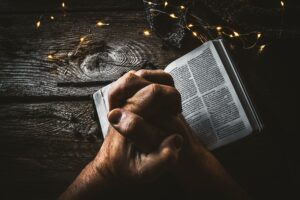Read Romans 11
Key Verse: Romans 11:32 “For God has committed them all to disobedience, that He might have mercy on all.”
The problem is exclusivism. I should know — I’m not only a Gentile but I also pastored a church in Jerusalem for seven years. Many Jews think they have the inside track to Heaven, and many Gentiles think the inner circle belongs to them. Some Jews say, “We’re the children of Abraham. The covenant is exclusively ours.” Some Gentiles say, (quoting Paul) “they [the Jews] were broken off because of unbelief” (11:20). Each group sees themselves as saved, the other as damned.
Personally, I don’t know why we’d want to damn anyone. The point is, both Jew and Gentile are in need of salvation. To Jews, Paul is saying, “You can’t be saved by osmosis — you need a Savior”. To Gentiles, Paul is saying, “Sure, you’ve been grafted into the tree, but don’t assume osmosis will save you either. Yo’ve got to be obedient, otherwise God will cut you off”. And to those Gentiles who have a low view of Jews, Paul says, “If you were cut out of an olive tree that is wild by nature, and contrary to nature were grafted into a cultivated olive tree [Israel], how much more readily will these, the natural branches [pruned branches!], be grafted into their own olive tree?” (v.24). In other words, even though some of the natural branches have been pruned, and lie apparently lifeless on the ground, there is life in them yet! Just graft them back into their tree and they will bear fruit once more.
So the Jews are disobedient, and so are the Gentiles. That’s the way God has ordained it. Why? Because He intends to show mercy to both. And if we don’t like it, we’ll have to bring our argument to God. Prepare to lose!

